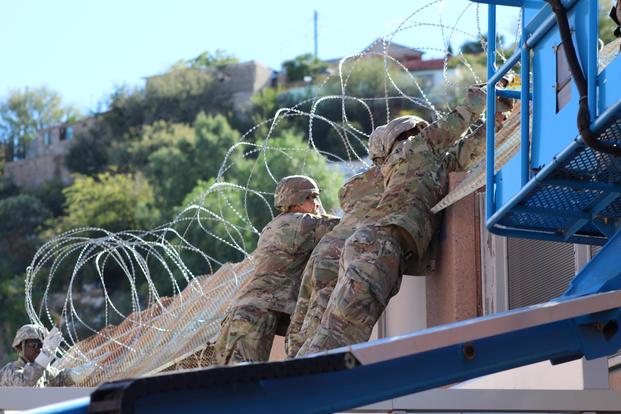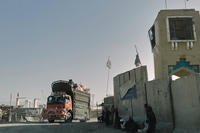Defense Secretary Jim Mattis plans to visit U.S. troops stationed on the southwest border on Wednesday as troops there await the arrival of the migrant caravan President Donald Trump has said poses an imminent threat to U.S. national security.
Mattis will travel to Texas and meet with troops there before heading off to Wyoming, where he will mark the repatriation of the Bells of Balangiga to the Philippines, the Defense Department said in an announcement.
Roughly 2,800 service members are stationed in Texas.
Mattis, however, could not elaborate on the costs of the operation, which has seen more than 5,600 troops deployed to the U.S.-Mexico border.
Related content:
- Active-Duty Troops at Border Will Not Receive Hazard Pay
- Top US General Defends Deployment of Troops to Border as Legal
- A Look at the Troops Being Sent to US-Mexico Border
"We'll update you on costs as they become known," Mattis told reporters during an event welcoming Qatar Minister of State for Defense Dr. Khalid Al-Attiyah on Tuesday.
"Obviously the units executing the border mission have got to report them right up here," Mattis said at the Pentagon. "We are capturing the costs."
Troops are expected to stay at least until Dec. 15, working in a mission-support role for U.S. Customs and Border Patrol. CNBC recently reported the deployments could cost roughly $220 million by the end of the year.
Last week, the Pentagon quietly stopped calling the mission "Operation Faithful Patriot," the name originally given to the mission for those deploying to Texas, Arizona and California.
Mattis directed the department to stop using the name, but a reason for the change was not given, the Associated Press reported.
The Pentagon announced earlier this month troops would not receive additional compensation for working in a dangerous environment, known as "danger pay."
Army Col. Robert Manning, a Pentagon spokesman, said troops do not qualify for the special pay unless they are on duty "in foreign areas, designated as such because of wartime conditions, civil war, civil insurrection, or terrorism."
"Members who are deployed in support of the Department of Homeland Security's border mission are not eligible for imminent-danger pay," he said in a statement Nov. 6.
Nor will troops receive hostile-fire pay, which is given to service members in close proximity to a firefight or exposed to a barrage of fire from an enemy combatant. The border mission is considered non-combative, Manning said.
-- Oriana Pawlyk can be reached at oriana.pawlyk@military.com. Follow her on Twitter @oriana0214.













